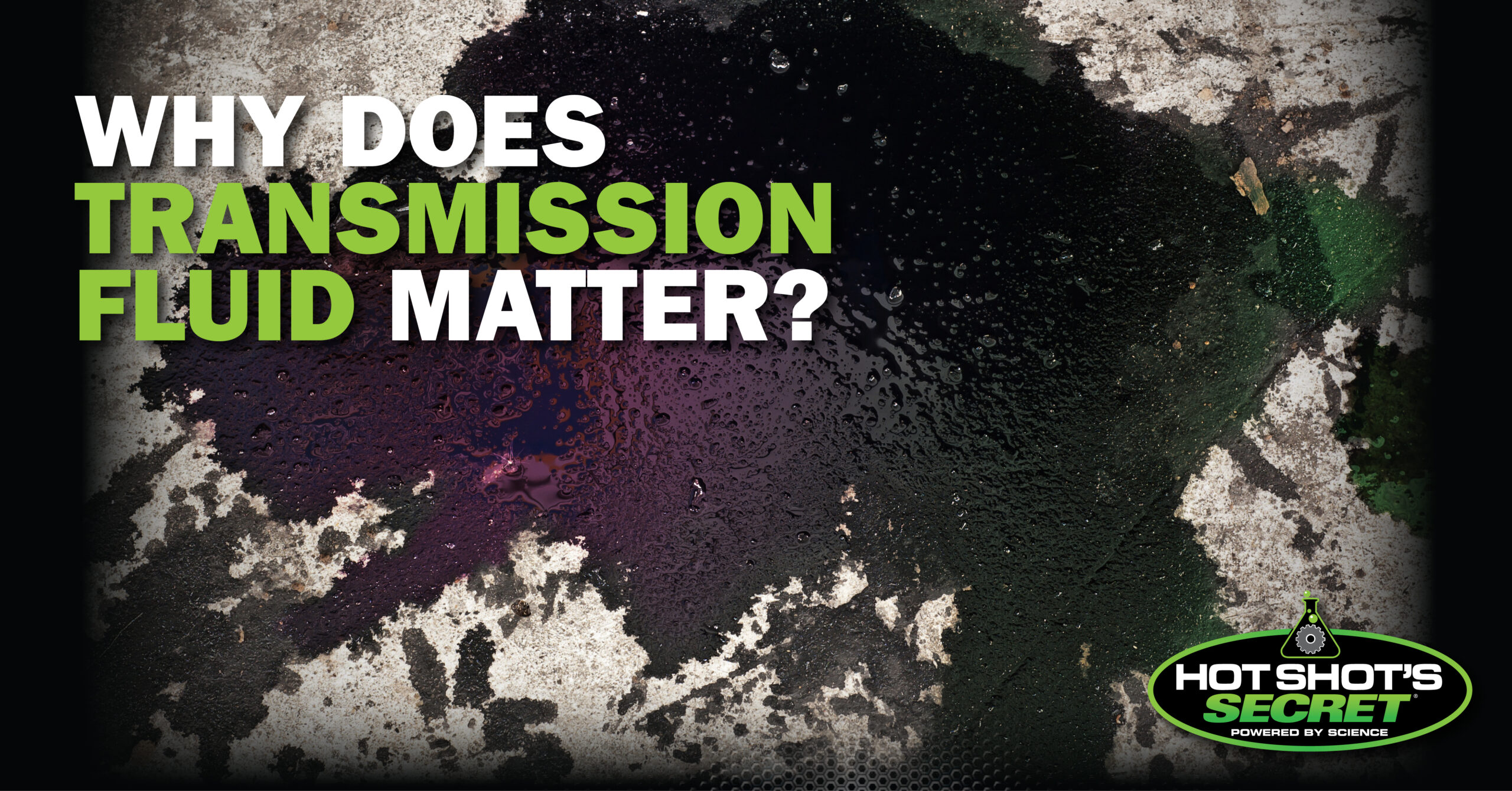
Despite its importance, transmission fluid is often one of your vehicle’s most overlooked fluids. Like other essential fluids, transmission fluid can deteriorate and lose effectiveness over time. Driving your car or truck with old or contaminated transmission fluid can damage your vehicle’s most critical components, eventually causing a breakdown and requiring expensive repairs.
If you don’t replace your vehicle’s transmission fluid when necessary, it will degrade like engine oil and lose its ability to lubricate effectively. The consequences lead to excess friction, increased temperatures and sludge buildup that can potentially cause damage to the valve body clutch and other components. In addition, transmission lines clogged with sludge and dirt can cause the pipes to crack or burst.
What Causes a Transmission Leak?
Transmission fluid leaks can happen from various occurrences in your system, from issues needing a simple parts replacement to problems requiring an entire system overhaul. If you see red fluid leaking from your car, there’s a good chance it’s transmission fluid. Although the fluid is red when new, it often turns reddish-brown as it ages.
Some of the most common causes of leaks include:
- Dirty transmission fluid: One of the primary consequences of old transmission fluid is the buildup of harmful contaminants. Excessive dirt and debris accumulating in the lines causes excess pressure that could result in cracks and eventual leaks. Dirty transmission fluid can also cause the seals to wear faster.
- Hardened seals: The primary responsibilities of transmission seals are to prevent leaks and block contaminants from entering. Extreme temperatures can affect seal conditions and cause them to dry, harden or crack. Check for faulty seals in areas like the shifter housing and output shaft.
- Damaged fluid lines: If you notice a fluid leak at the front of your vehicle when parked, you may have a problem with the transmission line. Most cars or trucks have fluid lines that connect to the transmission cooler at the front of the vehicle. While these durable metal lines often last decades, they sometimes develop cracks that can lead to leaks.
- Faulty gaskets: Most transmissions feature a gasket at the fluid pan that catches the fluid before it escapes the system. Normal wear and tear often result in bolts loosening or holes forming in the gasket. Replacing the gasket is a relatively simple job that most seasoned do-it-yourselfers can handle.
- Damaged torque converter: The primary role of the torque converter is feeding the transmission fluid into your vehicle’s power system. It’s a circular-shaped coupling located between the engine and transmission. If the converter cracks or sustains other significant damage, it will likely cause a leak.
Can You Drive Your Vehicle With a Transmission Leak?
Driving a vehicle with a transmission leak can often turn a minor problem into a more significant one. Critical components lose their lubrication and sustain damage quickly when a system does not have fluid at the required level. A transmission operating with faulty or damaged parts could eventually lead to a total system failure.
Even minor leaks can turn into severe issues within minutes or hours. Diagnosing the problem as soon as possible can help you save money for repairs or a complete overhaul.
Costs to Fix a Leaking Transmission
Costs for fixing a transmission leak depend on the issue. Although prices vary at repair shops and dealerships, a thorough diagnosis can range between $50 and $100. Most shops will factor the cost of the diagnosis into your final bill.
Parts replacement prices can range from $100 to $300 for a transmission pan gasket to $500 to $1000 for a complete torque converter replacement. A transmission rebuild can average around $3,000, while a transmission replacement can cost upwards of $5,000, depending on the vehicle.
Choose Hot Shot Secret Transmission Fluids and Additives
At Hot Shot’s Secret, our team understands how crucial transmission fluid is to your vehicle. We offer one of the industry’s top selections of transmission fluids and transmission additives to increase your vehicle’s life and performance. Our specialized formulas are scientifically proven to prevent excessive friction buildup and increase the lubrication levels of your transmission’s essential components.
Browse our selection of transmission fluids today to find the best fit for your vehicle’s requirements. Contact us at 800-341-6516 with questions or to obtain additional product information.
